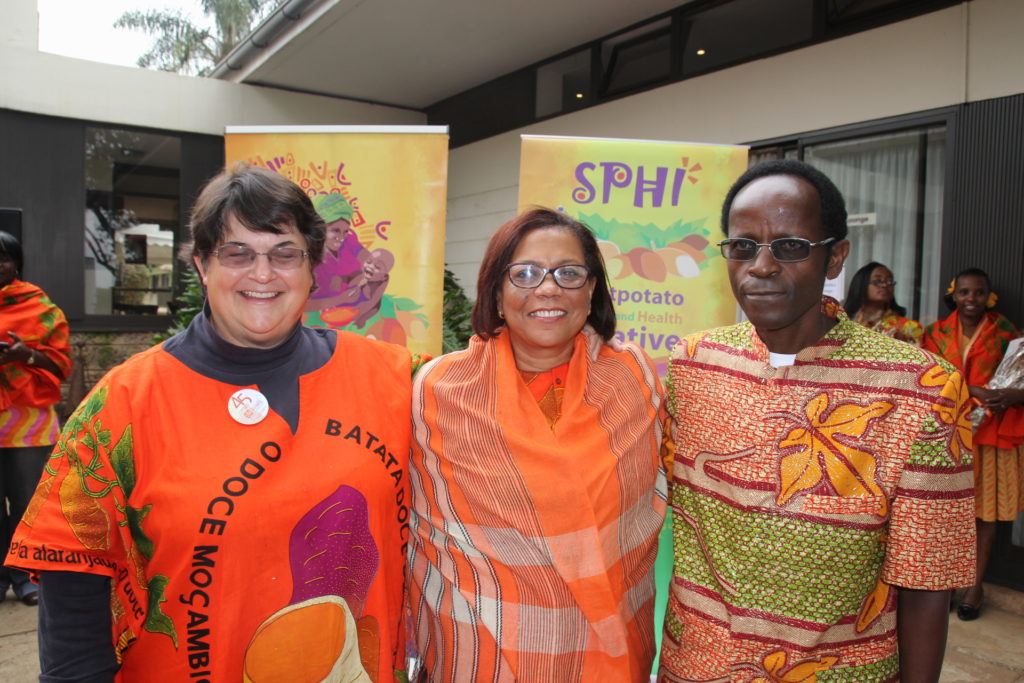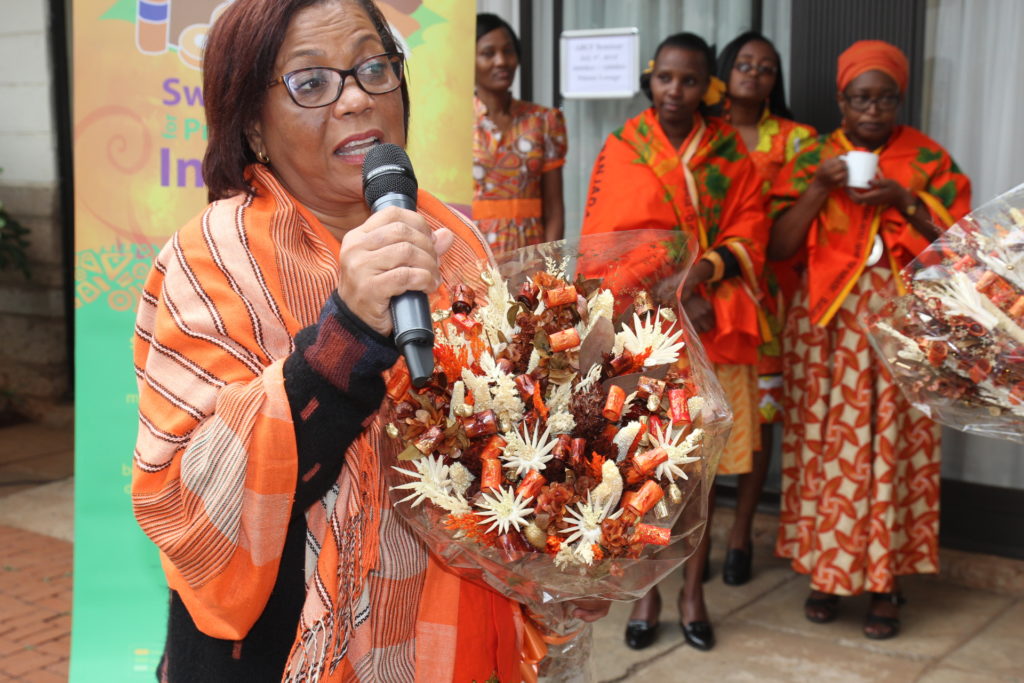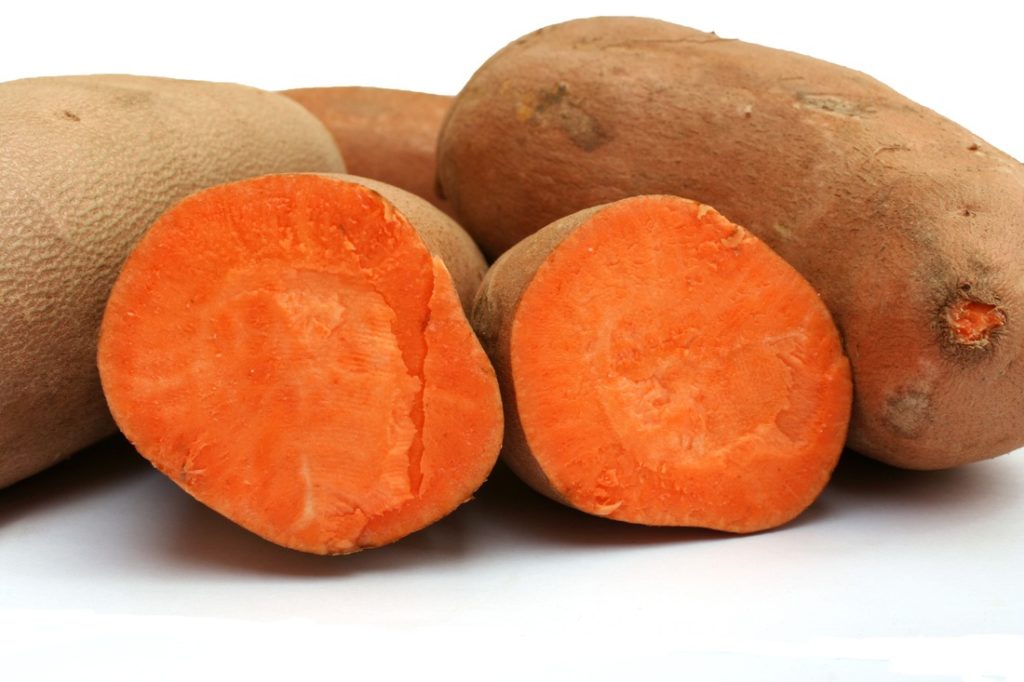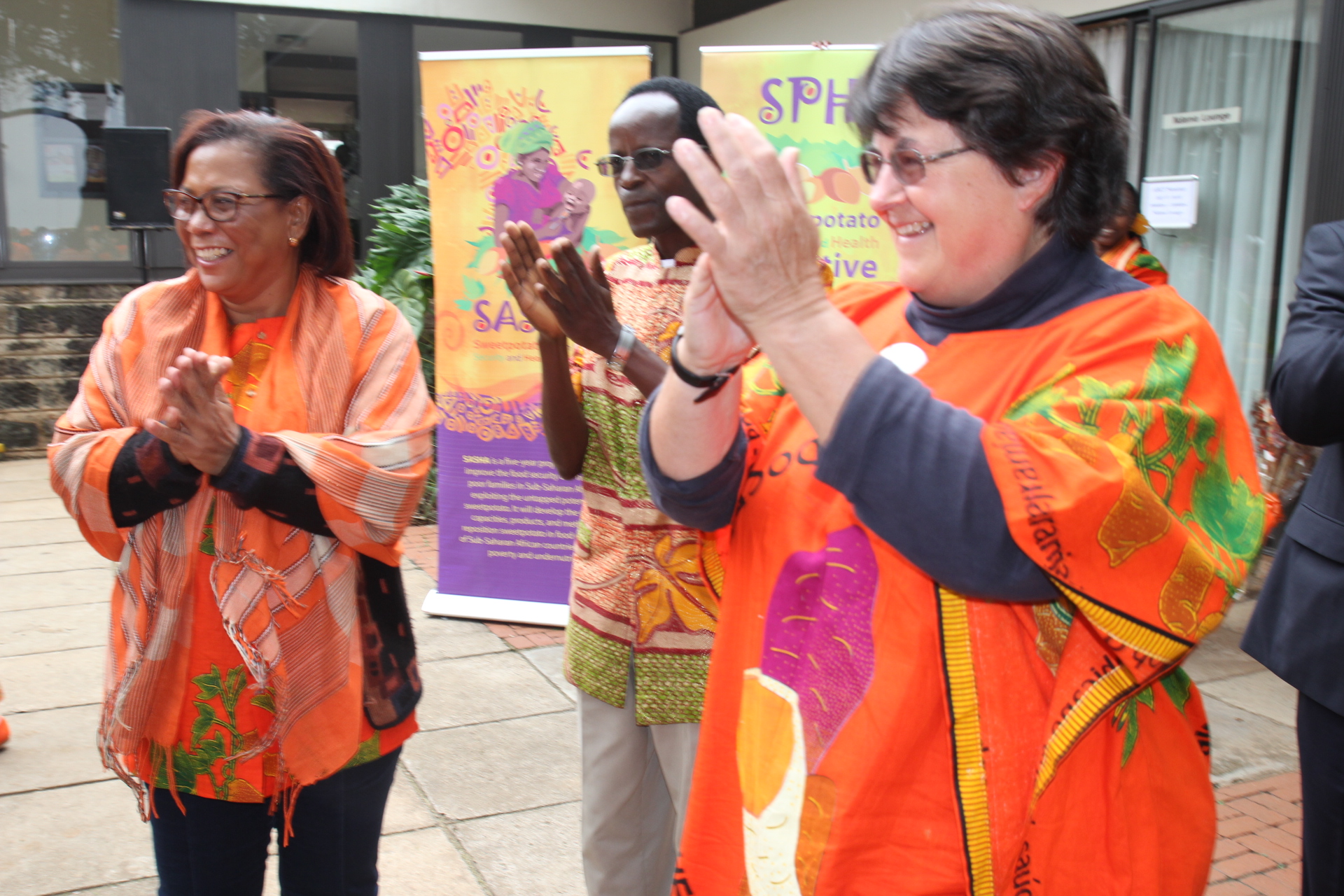|
Getting your Trinity Audio player ready...
|
By Mary Mwendwa
Sweet potato research scientists were recently awarded the prestigious World Food Prize in recognition for their efforts in improving health and nutrition through biofortified crops; one of them being the orange-fleshed sweet potato.
Dr. Jan Low, Dr. Maria Andrade, Dr. Robert Mwanga and Dr. Howarth Boius were awarded the 2016 World Food Prize at a colorful ceremony recently held in the US.
Congratulating the recipients, U.S state Department Ambassador Kenneth M.Quinn , president of the World Food Prize noted the fact that among the four scientists two of them were women among the four recipients.

International Potato Centre (CIP ) Director General , Dr.Barbara Wells said , “These four scientists have changed the lives millions through their efforts, they have made the case for orange-fleshed sweet potato would be accepted in various African diets, they bred resilient nutritious sweet potatoes that people liked, and now evidence shows that these communities are healthier as a result.”
Dr.Andrade and Dr. Mwanga plant scientists from Mozambique and Uganda have dedicated over 15 years of their research work to breeding the vitamin A -enriched orange-fleshed sweet potato from CIP and dominant varieties. Dr.Low similarly worked on nutrition studies and programs together with other agriculture experts from CIP which has led to more than two million households in Africa plant and consume the nutritionally fortified orange-fleshed sweet potato.
Speaking during a meeting with the press in Nairobi, the scientists expressed their gratitude one by one on how the orange-fleshed sweet potato has transformed nutrition among many of the households in Africa. For example in Uganda , Dr Mwanga who has extensively been involved in sweet potato research from 1980s which resulted in high yielding and pest and disease resistant varieties of the Orange-fleshed sweet potato said, ” I have seen a great improvement in maternal and child health of many of the Ugandan families who have consumed the orange-fleshed sweet potato. Many families had deficiencies especially with children under five years and when we started educating people on the importance of the orange fleshed sweet potato we have seen a great improvement in their health.”

Dr. Low similarly said that orange-fleshed sweet potato products were very important to the health of children.”We have come up with the flour from this product which can easily be used to make products like bread and cakes to add the value of nutrition to the food products.”
The sweet potato crop is among crops in Africa that were ignored and termed as a crop for the poor and a woman’s crop yet its nutritrion component is crucial for the development of children and pregnant women who usually need important nutrients such as vitamin A for their bodies.
About 150 million people in sub -saharan Africa are believed to have vitamin A deficiency . In Asia it is a leading cause of blindness, disease and premature deaths among children under five.
The world Food Prize , an international award which recognizes individuals whose achievements have advanced human development by increasing quality, quantity or availability of food in the world ,was created in 1986 by Nobel Peace Prize recipient Dr.Norman Borlaug .

Facts About Sweetpotato
- One of the world’s most important food crop.
- Sweet potato is also a valuable souce of vitamin B, C and E and contains moderate levels of iron and zinc.
- Grown in more developing countries than any other root crop.
- Despite its name sweet potato, it is not related to the potatoit is a root not a tuber .
- Sweet potato (ipomoea batatas )belongs to morning -glory family.
- Many parts of the plant are edible, leaves, roots and vines.
- Varieties exist with a wide range of skin and flesh colour , from white, yellow -orange and deep purple.














